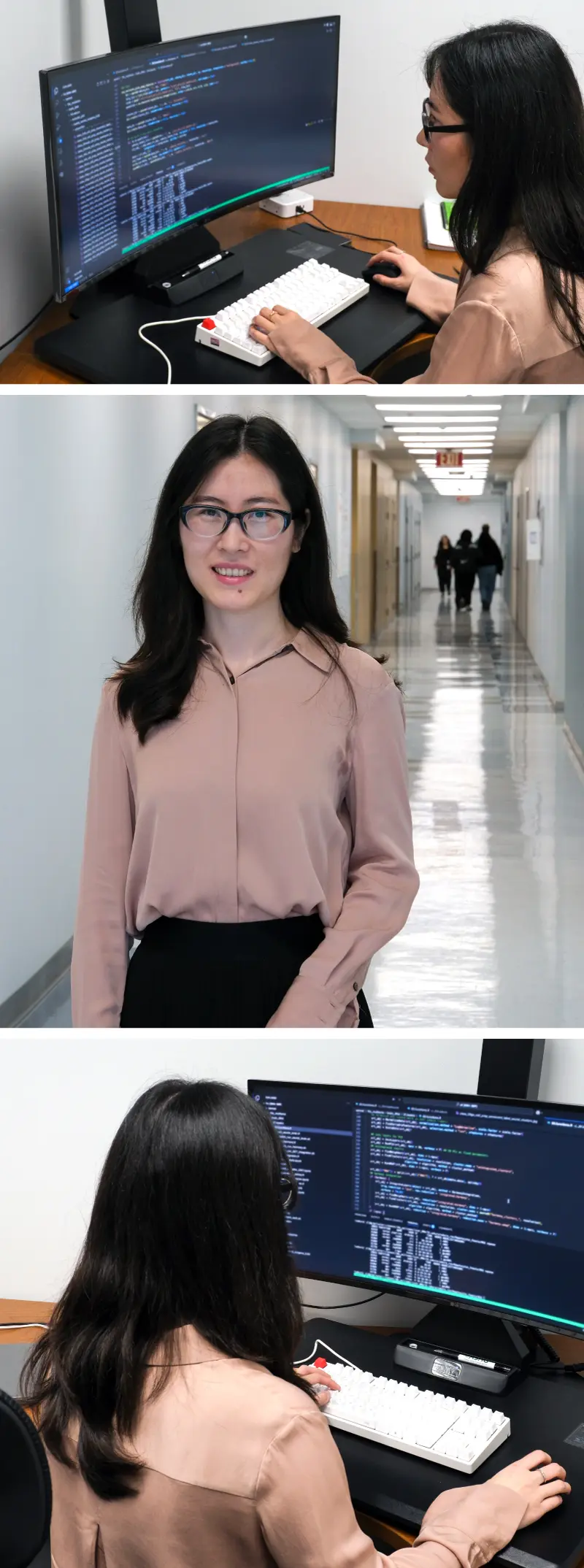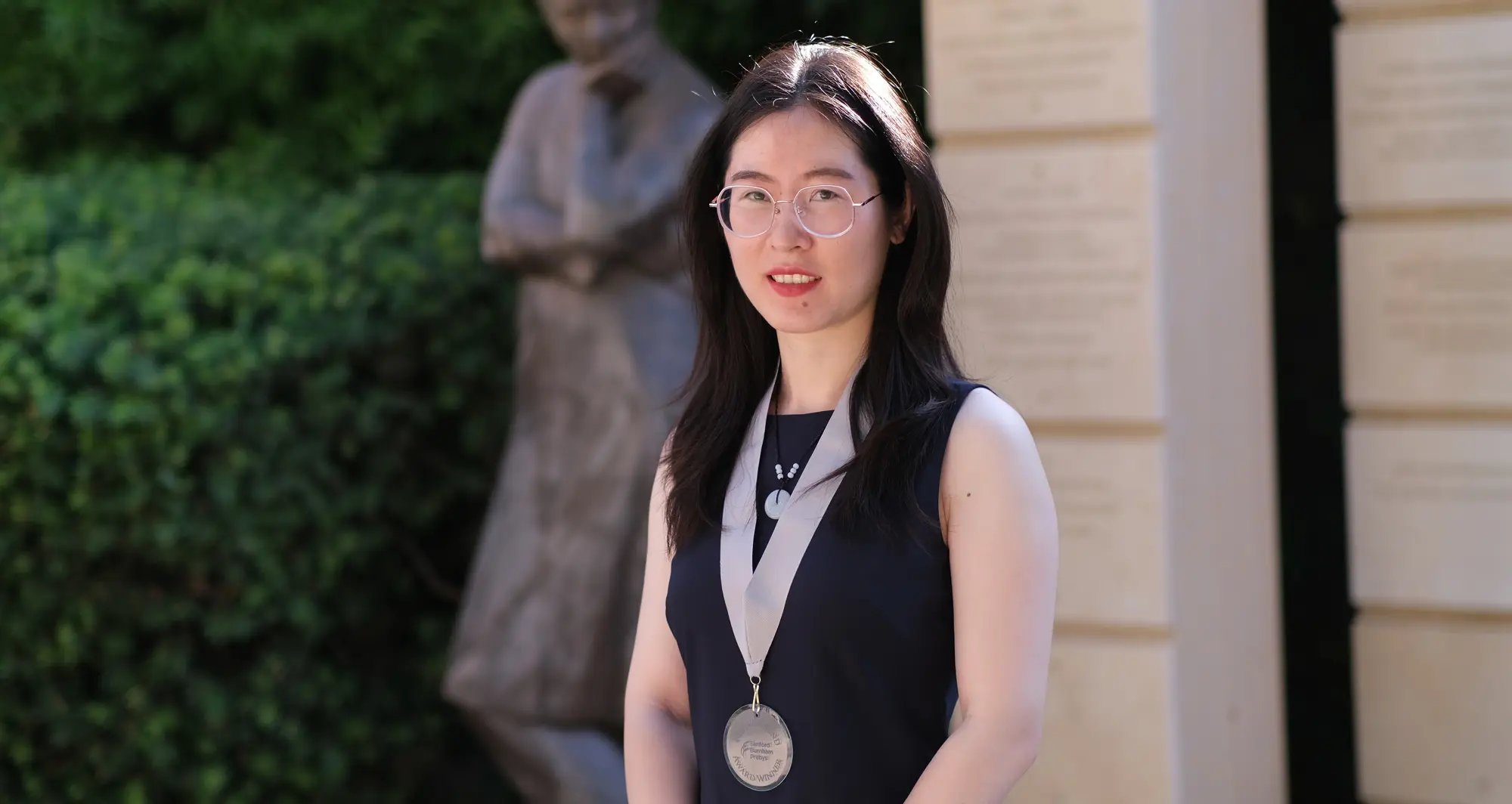Blending a love of biology with the power of data science, Kelly Li, Phd, is tackling one of life’s biggest mysteries: aging. In Yuk-Lap (Kevin) Yip’s lab at Sanford Burnham Prebys, Kelly studies how aging cells influence disease, teaming up with collaborators to explore promising new therapeutic approaches.
Can you tell us about your research at Sanford Burnham Prebys?
I’m part of a pure computational biology lab, where we analyze complex biological data instead of doing benchwork. My current project focuses on aging and senescence—cells that no longer function but don’t die and can affect surrounding cells through inflammation. We use cutting-edge tools like single-cell multi-omics to study these cells and explore potential therapeutic targets. It’s a highly collaborative effort, especially with Dr. Peter Adams’ lab.
How did you first become interested in science?
I’ve always been curious about how things work, especially complex systems like biology. I studied cell and molecular biology as an undergrad and was fascinated—but also frustrated—by how traditional experiments studied one gene at a time. I wanted a more holistic view, so I turned to computational biology during my Ph.D., where I used data science to study diabetic complications. That’s when I really fell in love with using machine learning and data analysis to understand biology.
What brought you to Sanford Burnham Prebys?
I followed my mentor, Dr. Kevin Yip, here from Hong Kong. He moved during my Ph.D., and we had ongoing projects, so it was a natural transition for me to join his lab as a postdoc. I’ve been here since October 2022 and am now working on this exciting aging-related project.
What’s it like to collaborate on such a large project?
It’s very dynamic. The project involves collaborators across Sanford Burnham Prebys, UC San Diego, and institutions like Yale and the University of Minnesota. We meet regularly, share data and ideas, and refine our hypotheses together. I lead the data analysis side, so after running results, I’ll send them around, and we iterate based on group discussions. These interactions are where new ideas often emerge.
What motivates you about your research?
It’s a combination of curiosity and a desire to make a meaningful impact. Curiosity drives me to ask deeper questions and design more insightful experiments. I also find motivation in the research process itself—troubleshooting challenges encourages critical thinking and fosters collaboration with others.
How has the Institute supported your growth?
The environment is very collaborative. It’s easy to talk science—even informally in the lunchroom—and that leads to meaningful conversations and collaborations. I’ve also benefited from professional development programs like grant writing and leadership workshops. They’ve helped not just with research but with career planning as well.
You received a Fishman Fund Award. What did that support allow you to do?
The Fishman Fund I received is a career development award for postdocs. I used the funding to attend aging-related conferences, which helped me get up to speed in the field. I connected with other researchers, heard inspiring talks, and had great discussions with trainees and leaders in aging research. It really expanded my perspective and helped me refine my research questions.
What are your career goals?
I’d love to stay in academia and eventually run my own lab. Whether that’s in the U.S. or back in Hong Kong, I’m not sure yet. But I’m committed to research and continuing to explore how computational approaches can answer big biological questions.

What do you enjoy outside of science?
I like hiking and exploring the beautiful nature around San Diego. I also enjoy watching movies, dancing, and going to the gym—I try to stay active. That’s part of the anti-aging routine, right?
Do you have any advice for aspiring scientists—especially those interested in computational biology?
Yes! Learn the basics—both programming and biology. You need to understand the data and the underlying biology to really make discoveries. Stay curious and motivated, even when you’re knee-deep in code. And be collaborative—great ideas often come from conversations with others.
Any mentors who’ve had a big impact on your journey?
Definitely my PI, Kevin Yip. He’s been my mentor since undergrad. He introduced me to computational biology, was incredibly patient when I was just starting out, and has always supported me. I learned so much from how he approaches writing, research, and mentoring. I’m very grateful.
Postdocs at Sanford Burnham Prebys are pushing the boundaries of science every day through curiosity, collaboration, and innovation. This series highlights their unique journeys, what inspires their work, and the impact they’re making across our labs.
